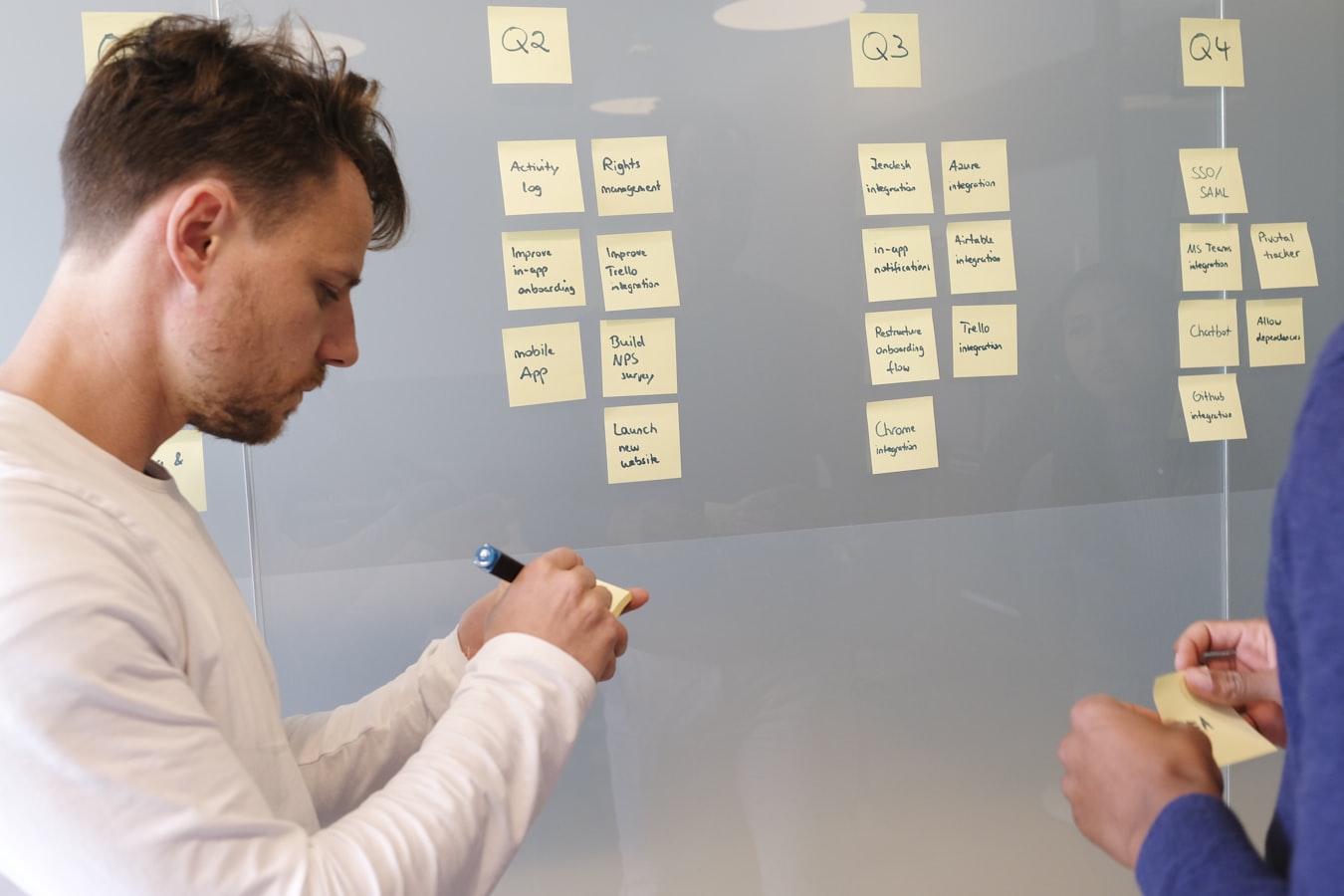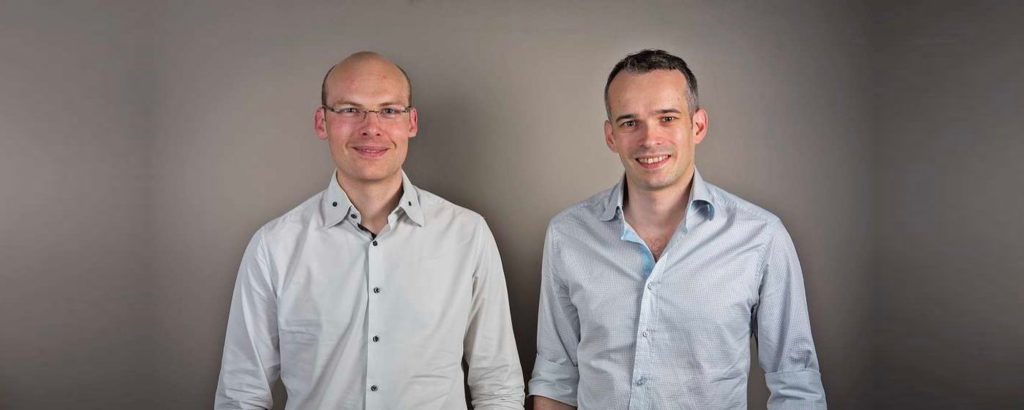If you’ve been working for a successful startup for a while, chances are you were able to develop significant skills (hard and soft), be it through the exposure you got, the training you received, or the people you worked with.
While you might feel understandably good about the skills you’ve mastered, two important points will make a difference:
(i) a company’s development is a fragile equilibrium which is constantly changing: hence, applying the same recipe to different ingredients might result in a different tasting cake
(ii) as we’ve covered in Part 1 and Part 2 of this series, as a founder, the variety of tasks you’ll have to cover will increase significantly. You can’t afford to be a one-trick pony, even if you’re a thoroughbred stud in your discipline. As Nicolas Dessaigne, co-founder and longtime CEO of Algolia puts it:

“Even if you’re an expert in your discipline, it won’t be enough in the long run.
As a founder with a technical background myself, I had to wear many hats, switching between building the product, selling it, raising capital to fuel growth, and hiring and managing a growing team. You have to constantly reinvent yourself”.
Below, we’re covering how you could conduct your self-assessment, and how to act on the conclusions you draw.
Framework for skills mapping
Not only is performing an honest, cold self-assessment difficult, it’s even harder to do it with such a subjective topic as the concept of “skills” can be. This is why we wanted to provide soon-to-be entrepreneurs with a skill-mapping framework that we’re using ourselves when evaluating teams we will invest in.
In essence, starting a company is the constant iteration on three fundamental building blocks, which are all composed of both hard and soft skills:
- Building the product (or offering)
- Bringing it to the market (i.e., selling)
- Building the company
Building the product

Building a product is essentially three things: (i) getting to know what to build and for whom (ii) actually building it and (iii) iterating in order to get to a minimum sellable product as soon as possible to get to the sacred Product-Market Fit. These steps require different skills, which are described below:
- Getting to know what to build is the most important skill of a product manager, requiring deep empathy (for consumer products) or understanding (for B2B products) of your customers’ needs.
> Here, functional background as a product manager or sales person can be very helpful, but sector knowledge can be as helpful as it usually gives you a headstart when it comes to understanding the users’ needs
Simplifying a bit, there are three types of products or offerings that you might find yourself building
- Heavy-tech software (or hardware): if your target is to build a blazingly fast search engine like our portfolio company Algolia, there is no way around it: you will have to invest heavily into engineering time to bring something worth trying for customers
> In such case, the early stage (or co-founding) team should really involve at least one person with a computer science or scientific background to be able to build the first MVP, because this is precisely what constitutes an edge for the team
- Low-tech platform: as it is generally the case for marketplaces of workflow SaaS (vertical or horizontal), but also for mobile apps, ideally the co-founding team should be able to build the first version of the product autonomously. But if the needs are well identified and clearly explained, we have seen examples of outsourcing to a freelance developer or an agency work as well.
> Co-founders without technical knowledge can actually pull it off, provided that they’re good at identifying the users’ needs (since by definition they are not building a product that no one was able to build before, but something which solves the users’ pain 10x better)
- Operations-heavy service: Deliveroo founder and CEO William Shu delivered the first meals himself and still does it from time to time. Hence, in transactional businesses, the very first versions of the ‘product’ usually don’t require much tech, but mostly operations.
> Here again, technical skills might not be the strongest requirement in the very early days (as tech talent can be hired later on to ‘productize’ and fine-tune operations), but given how much the devil lies in details in such businesses, being extremely data-driven and fast-paced are key skills
- Finally, the skills required to gather users’ feedback after they interact with the first versions of the product or offering are roughly the same as the ones required to design the product in the first place:
- Customer understanding, either from an emotional standpoint (empathy) or a rational, sometimes market-specific, analysis (sector knowledge),
- Data-drivenness and lucidity to get the feedback even if it hurts
- Agility, to react quickly and iterate
Bringing the product to the market

The second natural step after building the product is bringing it to market, i.e. selling it. Here again, there is no single recipe to achieve it, and it is often a combination of hard and soft skills in order to reach a level where your customer acquisition becomes predictable and repeatable, a phase also called Product-Go-To-Market Fit.
- Identifying the right users and listening to their needs: this phase is quite similar to the product design process, as it mostly relies on a strong capacity to listen and can be helped greatly by sector knowledge
- Actually selling the solution you’ve designed to tackle their problems: sure, some people seem to be born salespeople, with very strong interpersonal skills, the right level of commercial aggressiveness, and a capacity to create trust and comfort among their audience right away. Hence, if you have proof to these skills, it’s a headstart.
> If not, sales is not magic, and can be trained. We recommend that the founders sell to the first customers, enough of them to know the pain points, the customers, and how to address them, how to manage counter arguments, etc. inside out before being able to transfer this knowledge to new hires with more sales experience
- Building a repeatable, scalable and profitable go-to-market strategy to grow: finally, once you’ve iterated on a few initial customers, you will need to find efficient and scalable go-to-market strategies and channels to be able to replicate these initial deals and grow your company. The goal here is not to enter into too much details, and much content has been written on that topic, but here is where the numbers come into play: the amount of leads you generate, the conversion rate of each of these leads in your funnel, the reasons why people drop at each stage of the funnel, the resources you put in place to “push” customers down the funnel, to finally whether this distribution channel makes sense from an economic standpoint (ie, whether your customers bring you significantly more value than the cost to acquire them), be it for a B2B or a B2C model.
> Here, having existing experience of building a marketing and/or sales machine with a similar sales cycle and a similar target audience is a huge asset, where your scaleup experience is a big plus. Schematically, consumer / SME / Enterprise are three target customers with very different distribution channels to reach them, and switching from one to the other may appear difficult. As an example of this, Julia Bijaoui successfully leveraged her consumer experience to draft a customer acquisition machine when she co-founded Frichti
Building the company

Iterating on the product and selling it can (and should) be done by complete founding team, but as you repeat the process, you’ll need to scale the team and start hiring employees, be it only to take care of your customers (Customer Success), iterate and maintain the product (Tech and Product) or replicate distribution (Sales and Marketing, Partnerships).
This is the company building phase, which requires yet another skill set – scaling oneself as a manager, which is the most often overlooked by first time founders from our experience.
- Hiring an A-team: skills to hire a stellar team are both analytical (knowing who to hire and for what role), interpersonal (knowing how to assess people and compare the person who have in front of you with the scorecard of who you need) and persuasive (convincing them to join you while you’re still a small, unknown startup).
> These skills are often trained with experience, in what can be called “pattern recognition”. Having an experience hiring people is extremely valuable in this regard, but it can be learnt as well, with a lucid and thorough process, reading about the topic and talking to managers who have hired a lot
- Managing and motivating people: startups are hard. The product fails or lacks features. Customers don’t want your solution. Your employees will probably be earning less than what they could get on the market. In these tough moments, your leadership capabilities will be paramount to align people around the company’s mission and motivate the troops.
> Not every founder wants to be the proverbial face of the franchise, or feels comfortable being the person everyone else looks at for guidance, energy, drive and decisions. 2 potential scenarios emerge:- A/ find a co-founder who is willing and able to handle the role of the leader
- B/ be prepared (mentally, but also financially and in terms of equity) to hire a CEO / COO / General Manager down the road
- If you are ready to take up on the challenge, try to develop these skills in your current company, and push to get the exposure you need. And in any case, get in touch with leaders in your company and your network to act as your mentors and share their wisdom and best practices on leadership and people management
- Anticipating: as a company founder and even more importantly as a CEO, your job is to keep the company alive and thriving. With this target in mind, you’ll often be in the situation where you need to anticipate everything from:
- Ensuring you have enough financial resources to keep growing (fundraising, negotiating debt, optimizing cash inflows and outflows, …
- Negotiating the most important deals with partners, suppliers, dealing with competitors or predicting and countering potential substitutes
- Strategizing to design and prioritize the strategic and product roadmap for your company to keep growing and expanding beyond its initial market or value proposition
These functions of the CEO require softer skills, which cannot be implied by reading a resume, but which we often summarize as follows when assessing founding teams:
- Mental bandwidth: capacity to handle a lot of information, uncertainty, contradicting signals, while keeping focus and lucidity, and capacity to learn and adapt quickly
- Attractiveness: not physical, obviously, but charisma and capacity to bring people together towards a common goal, which is paramount to attract top hires, partners, investors, etc.
- Drive: both ambition, relentlessness, and high energy in order to get back up after every possible setback along the way
This family of skills is arguably harder to assess whether or not you have it, and more difficult to imitate as they can be deeply entrenched in someone’s personality. However, having been in a position where you had to hire, manage, and strategize, even at a smaller scale (e.g. in a functional team or a particular geography) is a very valuable basis to build upon.
Once you’ve assessed the skills you have and the ones you will need at the early stages of your company, a good way forward is performing a gap analysis to identify areas where the skills you have are not sufficient, which are the ones you will have to acquire. Then, the natural next step is to think about how you will acquire them.
Bridging the skills gap

An honest self-assessment is the first step of strategizing a roadmap for the skills your startup requires: make sure to take time to map and qualify the skills you’ve acquired. Basically, you want to divide the skills above into 3 groups:
- Skills you know you have: skills that you’ve actually deployed in your current job, and that you have tangible experience with. Those are the foundation you’ll build around
- Skills you believe you can acquire: skills that you haven’t been exposed to but trust you can develop through academics or hands-on experience while building your startup
- Skills you don’t think you can acquire: … either by lack of time, interest, or disposition for the topic at stake. Those are the ones you might need to strategize for
The most important thing is to capitalize on the skills you know you have, and bridge the gap for the ones you don’t have but know you will need. Essentially, you can either “build or buy” these skills, and the rationale around your decision should factor in both: your willingness / motivation, how much time do you have / how long does it take to develop those skills, and where do you start from but also the resources you have (either cash or equity) if you find yourself in a position where you need to buy it.
The co-founder option
A frequent tactic here is to find a co-founder. This approach certainly has its benefits, though it shouldn’t be considered mandatory at all – a number of founders were able to create great success without co-founders, with examples such as Drew Houston (Dropbox), or closer to us in our portfolio, Carole Juge Llewellyn (Joone) and Anthony Bourbon (Feed).
This will again depend a lot on your personal makeup, but hereafter are a few items to consider when pondering whether or not you want one or multiple co-founders for your company:
- Distribute the pressure: In the startup-relevant words of Haas Formula 1 team principal Günther Steiner, “the highs are very high, and the lows are very low”. As we discussed in Part 1 of this series, founding a company involves intense pressure, and one of the upsides we’ve often seen with co-founders is the ability to distribute and balance this pressure. Not being the single focal point can often help handle the highs and lows of Founder life, and can help take a step back and get a fresh perspective on situations
- Secure differentiating skills: as we covered above, one option to source skills you don’t have, and / or to protect skills that will be a difference-maker for your company is hiring one / multiple co-founders with complementary skill set and personality traits. However, skill-sourcing alone shouldn’t be the sole driver to hire a co-founder – you might probably be able to hire skilled early employees to help out, and secure their involvement with an enticing stock-option package…
- … which brings us to our last, but certainly not least point: ensure fit & aligned commitment. This might be a cliché, but cannot be overlooked – as founder fights are one of the most common reasons for startup failure in the first years. You and your co-founders are going to go through a lot together, on a journey that is likely to be both intense and durable. Like in any long-term relationship where you’re committing to one another, make sure that you know this / these persons enough and limit the number of grey areas. There will surely be surprises and things you can’t predict, but go into battle knowing that the people you’ve forged this alliance with will stand tall with you.
Whether you’re looking for co-founders or early employees, your experience as a scale-up alumni will again prove of great help.

Indeed, a good way to start when looking for help is within your peers and those who followed you: scale-ups often are attractive places to work, and are gradually able to become very demanding with their hires, and recruit top-level profiles that will be able to grow beyond their roles. You can probably find, within the people you worked with, a number of young, hungry and smart minds that have already proven themselves, and could be looking for more (more specifically, employees with a couple years of experience will have both some experience, references you can easily check, and will likely stay within your early-stage hiring budget).
Another route, whether you’re looking for co-founders or early employees, is the people who will support you:

“At Alven, we meet with a lot of people with strong and rich track records, wondering about their next steps.” says Christelle Lecuyer-Weber, Head of Talent at Alven.
“Every week, we introduce these people either to companies in our portfolio who might be a good match, or to like-minded people looking for their next challenge. We’ve already seen a few go on and launch their company following these intros, which we’re very excited about!”.
Throughout this series, we’ve looked at some of the key questions to look at when considering making the jump from working in a successful scale-up, to starting your own company. Whether it relates to finding out the essential reasons that drive you to start a company, using these reasons as part of the ideation process to find out what your company will be about, to identifying and sourcing the skills you need to get going, there are many ways you can make good use of your past experience.
But of course, these 3 aspects are only a small part of the wide range of questions you might ask yourself. So if you’re an early employee at a top scale-up and considering launching your startup, feel free to reach out, and we’ll be happy to discuss these topics in depth with you!